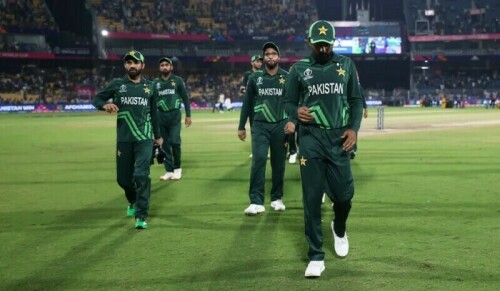
COLOMBO, Sri Lanka: Andrew Strauss has blamed the scheduling of the Ashes for England's poor showing at the World Cup.
Sri Lanka eliminated England with a clinical 10-wicket victory Saturday in the World Cup quarterfinals, ending an inconsistent campaign from Strauss's injury-depleted squad.
England won the Ashes 3-1 in Australia, but then slumped to a 6-1 ODI series defeat in a tour that started in November and stretched into February before the squad headed to the subcontinent for the World Cup.
''It's a huge amount to ask players to go and tour Australia for three months ... and then go straight into the World Cup without spending time at home,'' Strauss said.
Three-time defending World Cup champion Australia was also knocked out in the quarterfinals in a five-wicket loss to India.
Strauss said the scheduled of both events in such close proximity ''doesn't give you the best chance'' in the World Cup.
Future Ashes series have recently been rescheduled to avoid clashes with the 2012 London Olympics and the 2015 World Cup.
''Clearly lessons have been learnt and that (Ashes) cycle is changing,'' Strauss said. ''It would have been good if they changed before this particular one.''
England had a bumpy ride in the World Cup on slow subcontinent wickets, losing to Ireland and Bangladesh in shocking group stage upsets.
England scraped through to the knockout stage with a comeback win over the West Indies in a high-pressure match, before Bangladesh lost its last group match to South Africa.
The absence of injured fast bowlers Stuart Broad and Ajmal Shehzad also cost England dearly as the backup bowling lacked any penetration against Sri Lanka openers Tillakaratne Dilshan and Upul Tharanga.
Both openers scored their second centuries in the tournament and featured in a 231-run stand to wipe off the target of 230 in less than 40 overs.
''We were thoroughly outplayed,'' Strauss conceded. ''We can't hide away from that.''
Paceman Jimmy Anderson, one of England's Ashes heroes, had a horrible World Cup and was dropped from the squad after taking 4-282 in five group matches.
Strauss said that the fast bowler needed a good break to get a fresh start in English summer.
Anderson ''got to a stage where mentally and physically he was pretty burnt out,'' Strauss said. ''He has given everything he possibly can for the side over the course of six months ... I think he kind of reached the end of the road.
''He needs a good break now —he'll come back and be a good performer in the English summer.''
Sri Lankan bowlers —led by Muttiah Muralitharan (2-54) —made amends for three dropped catches of Eoin Morgan to restrict England to 229-6.
Captain Kumar Sangakkara intelligently maneuvered his bowlers and, despite Jonathan Trott's 86 and Morgan's 50, made a placid pitch look like a minefield.
''You have to give credit to Sri Lankan bowlers, there's a lot of variety there,'' Strauss said. ''They bowled a lot of dot balls on us and then restricted the boundaries. ''We go home with our tails in between our legs.''














































Dear visitor, the comments section is undergoing an overhaul and will return soon.